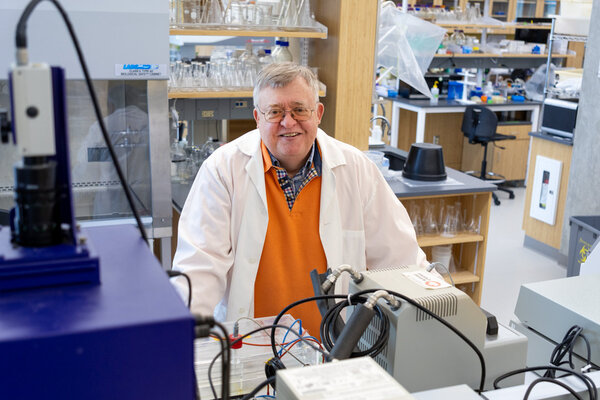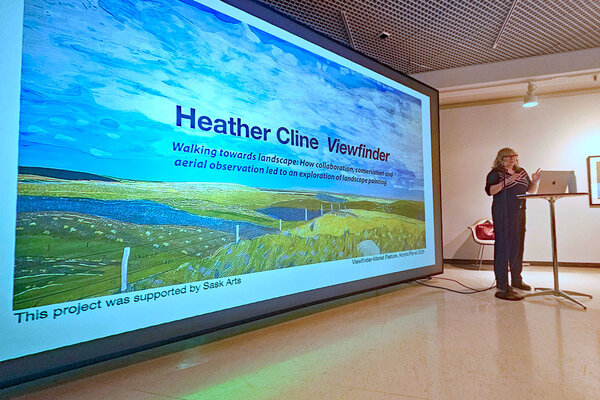
USask alumnus focuses on health-related projects as postdoctoral fellow
Dr. Jeremy Eng (PhD) will officially receive his doctoral degree in mathematics during USask’s 2020 Fall Convocation
By Shannon Boklaschuk
A high-achieving three-time University of Saskatchewan (USask) alumnus has now completed his PhD—but his USask journey is far from over.
Dr. Jeremy Eng (PhD) will officially receive his doctoral degree in mathematics this month during USask’s 2020 Fall Convocation. He previously completed a Bachelor of Science in statistics and economics (double honours) in 2012 and a Master of Science in statistics in 2014—all in USask’s College of Arts and Science.
Eng is now a postdoctoral fellow in the college’s Department of Computer Science and Department of Mathematics and Statistics who is working on health-related projects. He said it feels great to be able to continue his research at USask.
“From being at (USask) for quite a while now, I’ve been involved with quite a few different programs across campus, and I’ve met many amazing people. Also, being able to stay close to my family here in Saskatoon is important to me,” said Eng, who was born and raised in the city.
Eng is currently working on two main projects. In one instance, he is in the early stages of using Particle Markov chain Monte Carlo (PMCMC) techniques to model COVID-19 in Saskatchewan. The work is being conducted alongside his supervisors Dr. Juxin Liu (PhD) and Dr. Nathaniel Osgood (PhD), who is working closely with the Saskatchewan Health Authority (SHA).
“The goal of the project is to improve the speed, accuracy, and robustness of the current COVID-19 modelling done by Dr. Osgood’s group, which informs the SHA about predictions involving the spread of COVID-19,” Eng said. “Some of the modelling work will also be applied to a patient-oriented research project studying opioid addiction in Saskatoon.”
Prior to starting on these projects, Eng completed his PhD dissertation under the supervision of Dr. Chris Soteros (PhD) in the Department of Mathematics and Statistics. Eng’s PhD research focused on the knotting and linking of ring polymers, such as DNA, in confined environments. This was done using a “self-avoiding polygon” model, he said.
Eng noted he is grateful for Soteros’ “expertise, unwavering support and invaluable advice.”
“I am so grateful to have had such a patient, understanding and encouraging mentor during my PhD journey,” he said. “Also, my PhD studies allowed me to gain experience as a teaching assistant, lab assistant and lead instructor, and this allowed me to discover my passion for post-secondary teaching.”
“Jeremy has been a terrific and highly effective teaching assistant across the whole of his graduate studies, and has been frequently sought to aid instructors in the delivery of courses at every level,” said Dr. Steven Rayan (PhD), graduate chair in the Department of Mathematics and Statistics. “It’s no wonder that Jeremy had won a prestigious Teacher Scholar Doctoral Fellowship that allowed him to be the lead instructor of his own mathematics course.”
Eng, who received numerous scholarships and awards throughout his graduate studies, also worked with the Kamskénow program, offered through the College of Arts and Science’s Science Outreach Office, during his master’s and doctoral degrees. Kamskénow provides hands-on science and mathematics activities to Saskatoon community school classrooms, with the goals of increasing science literacy and engagement as well as the participation of Indigenous people in the sciences.
“I spent time going out to inner-city classrooms where we would do fun science and math activities to get students engaged with science and math,” Eng said. “When the Museum of Natural Sciences offered field trips, I volunteered because I had enjoyed the Kamskénow outreach so much. I really enjoy teaching.”
In addition to working with Science Outreach, Eng was involved in other activities at USask. For example, he was the main organizer for the 2017 PIMS Young Researchers Conference in Mathematics and Statistics, which included 61 participants from across Western Canada. He also played USask Rec hockey as an undergraduate student.
Eng said it now “feels amazing” to officially receive his PhD, which is the result of “many years of hard work all coming together.”
“I’ve also met some great people during my PhD journey and made some friends along the way. I also feel very excited to start my post-PhD career,” he added.


